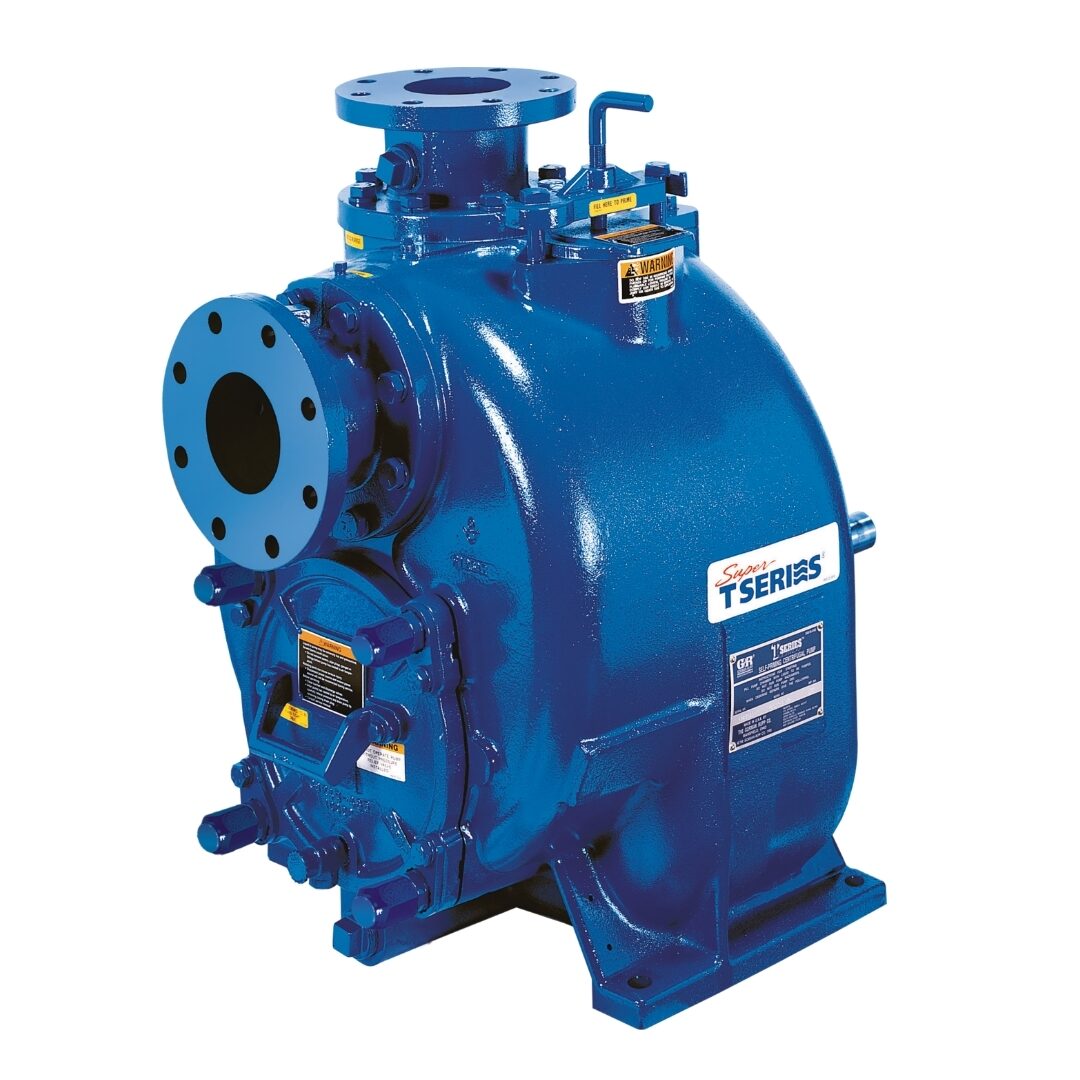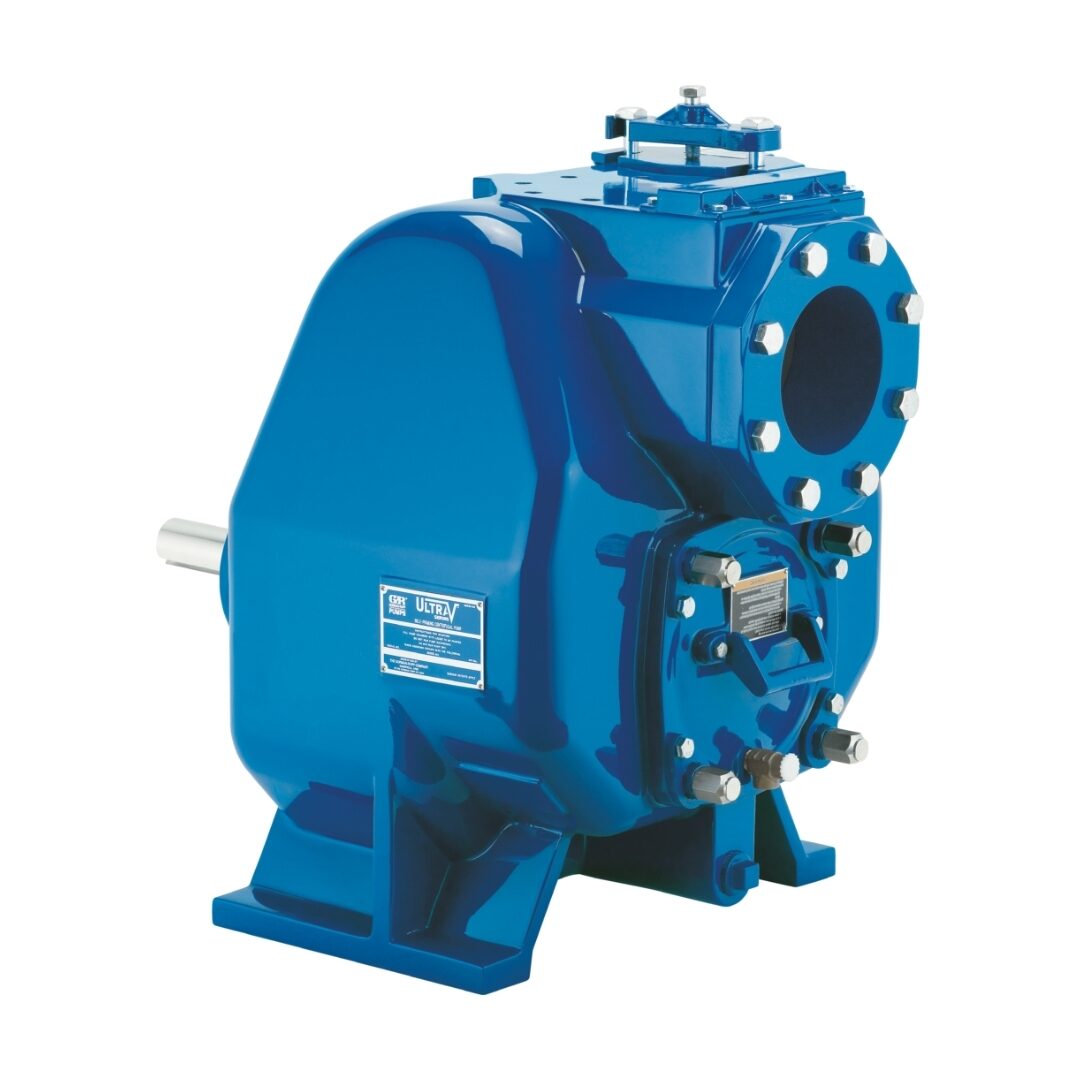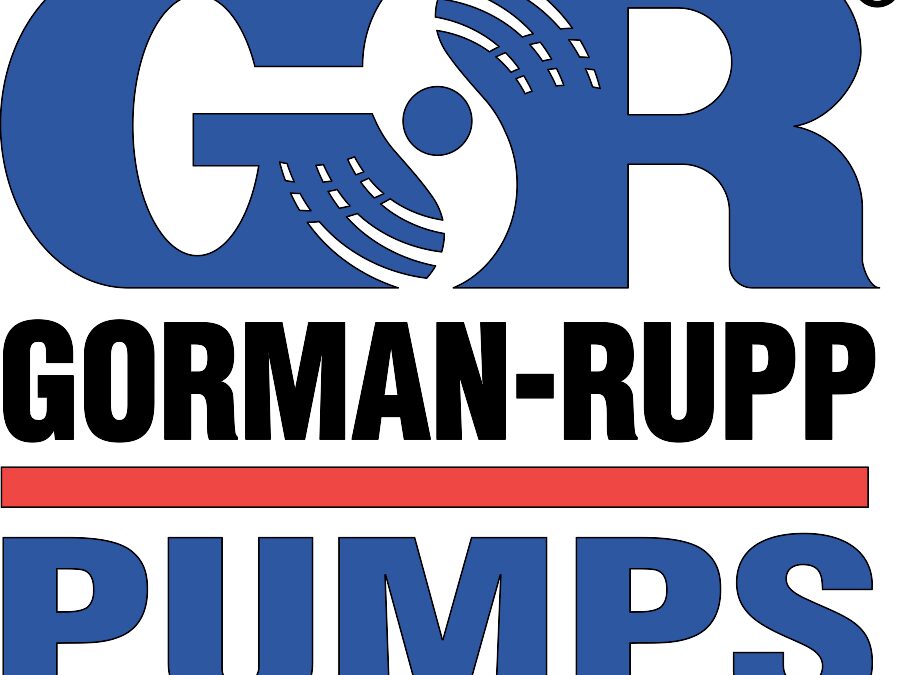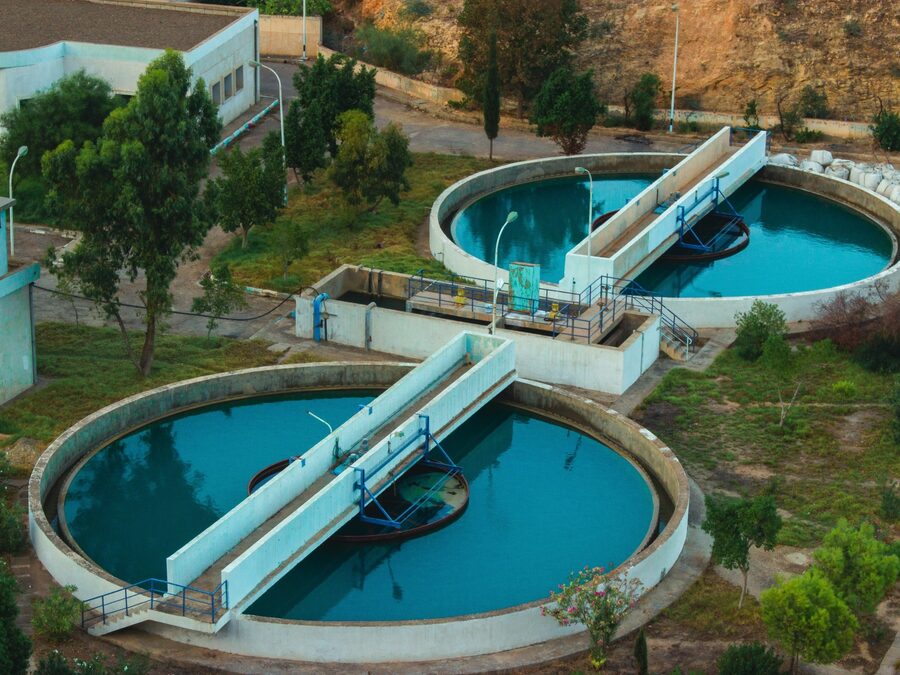In this blog post, we'll explore three different types of pumps that are commonly used in industrial wastewater management: the Self-Priming Centrifugal Pump, the Air-Operated Diaphragm Pump, and the Peristaltic Pump. Each pump type comes with its unique features, advantages, and limitations, so understanding their operational differences and suitability for various conditions is key to making an informed choice.
We'll also delve into a real-world case study, providing practical insights into how these pumps function in actual industrial environments. In this case, we'll review how Anglian Water, one of the leading water companies in the UK, tackled its wastewater management challenges with a recommendation from us at Hydromarque. Through this example, we aim to illustrate how the correct choice and implementation of a pump can significantly improve operational efficiency, reduce downtime, and lower overall costs.
Self-Priming Centrifugal Pump
A self-priming centrifugal pump uses a spinning impeller - a wheel with blades on it - to throw fluid away from the centre. This creates a vacuum in the centre that fluid tries to fill before being thrown out again, creating a cycle that moves the fluid from one place to another.
Not every centrifugal pump is self-priming, but some have a dedicated priming mode that throws air out of the pump and lets fluid in. This means you do not have to think about a massive part of pump maintenance.
Another major advantage of centrifugal pumps is that they are designed to handle large amounts of fluid quickly, far more than most other industrial wastewater pump types. Plus, they are compatible with abrasive fluids which is likely when dealing with wastewater, and can also mix fluids as they pump. Their simple construction means that repairs and upkeep are one of the simpler processes in the range of wastewater pump types.
Air-Operated Diaphragm Pump
An air-operated diaphragm pump works almost like a beating heart. The diaphragm of the pump is a flexible piece of rubber, thermoplastic or Teflon which moves back and forth in a chamber, causing movement in the volume of fluid in the chamber.
For example, when the diaphragm moves in one direction to decrease the pressure in the chamber, more fluid enters the chamber. Likewise, once it moves in the other direction, it pushes the fluid out of the chamber.
Air-operated diaphragm pumps are advantageous for handling harsh, viscous fluids such as sludges, as the internals are protected from the fluid. However, they operate slower than a centrifugal pump and are only partially self-priming, meaning maintenance is still required to keep them in running order.
Peristaltic Pump
Used predominantly in laboratories and medical devices, peristaltic pumps are a complex pump type that functions with a flexible tube and series of rollers that squeeze the tube in a sequence, pushing wastewater in the tube along.
One of the main advantages of a peristaltic pump is that the pump itself never comes into direct contact with the liquid being pumped, which is great for industrial wastewater where contamination might be an issue. Plus, it is relatively inexpensive to maintain as the lack of valves and seals means it is very reliable.
However, these pumps are only suitable for fairly low flows, have very low efficiency and are not suitable for handling sharp solids.
Our Recommendation: Self-Priming Centrifugal Pumps
At Hydromarque, we recommend using self-priming centrifugal pumps for their ability to handle a range of liquids both smooth and abrasive at high quantities and speeds. We offer pumps of this type specialised for industrial wastewater processing, such as the Gorman-Rupp Super-U Series and Super-T Series pumps.
Case Study: Solving Challenges with Anglian Water
Hydromarque tackled a challenge put forward by Anglian Water using a Gorman-Rupp self-priming centrifugal pump, to excellent results. Their Benhall STW team consulted us about replacing a set of unreliable screw pumps that were regularly breaking down and delaying the wastewater pumping process.
After a site inspection, Anglian Water and Hydromarque experimented with a single No. 6" Gorman-Rupp Super T Series pump for a month alongside their diesel-driven surface-mounted pump. The self-priming centrifugal pump performed well, increasing efficiency and saving time that was previously spent priming. Another set of pumps was installed after the successful trial.
As a result, in 2015, Anglian Water decided to replace one of the pumps on the high-level inlet pump station on site. The full case study on how the efficiency of Anglian pumps was restored with the Gorman-Rupp Super T Series can be found here.






